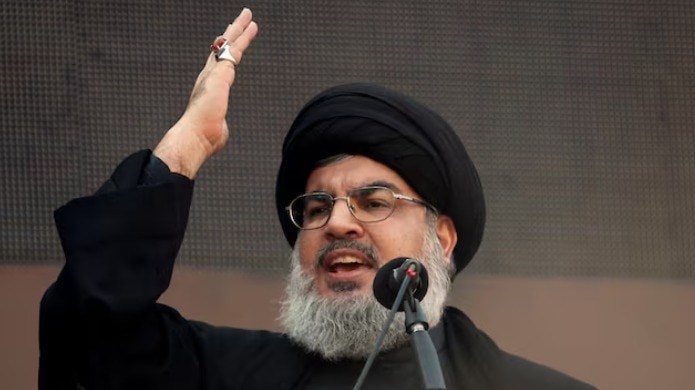2024-10-03 03:20:32
In the days following Hezbollah leader Hassan Nasrallah’s death in an Israeli airstrike in Beirut, Lebanon, Iraq has seen a surge of newborns named in his honour.
According to Iraq’s health ministry, around 100 babies across the country were registered under the name “Nasrallah”.
Nasrallah, who had been at the helm of Hezbollah for over three decades, was seen by many as a symbol of resistance against Israeli and Western influence in many Arab nations. He commanded a significant following in Iraq, particularly among the country’s majority Shia community.
His assassination sparked anger across the country, triggering large-scale demonstrations in Baghdad and other cities. Protesters condemned Israel’s actions and declared the killing a violation of international law.
Iraqi Prime Minister Mohammed Shia al-Sudani described Nasrallah as “a martyr on the path of the righteous.” During a three-day state mourning, vigils were held nationwide to honour the Hezbollah leader.
Nasrallah’s ties to Iraq run deep, rooted in both religion and political ideology. Born to humble beginnings in 1960, Nasrallah went on to study Islam at a Shia seminary in the Iraqi city of Najaf. It was here that his political views took shape as he joined the Dawa party, eventually setting him on a path that would define his militant career.
He rose to prominence after joining Hezbollah in 1982, following Israel’s invasion of Lebanon. Formed with the backing of Iran’s Revolutionary Guards, Hezbollah was initially a militia aimed at resisting Israeli forces.
Nasrallah took the reins of Hezbollah in 1992 after the assassination of his predecessor and mentor, Abbas Musawi. Over the next three decades, he transformed the group into a regional powerhouse, influencing conflicts from Syria to Yemen and training Palestinian fighters in Gaza.
Under Nasrallah’s leadership, Hezbollah’s power grew, both militarily and politically. The organisation helped provide missiles and rockets to groups like Hamas and militias in Iraq and Yemen, all part of a broader ‘Axis of Resistance’ to Israel and its allies.
Nasrallah was particularly popular among Iraqis critical of the US presence in Iraq following the 2003 invasion, solidifying his image as a symbol of resistance to Western intervention.
However, his leadership was not without controversy. While revered by supporters, others saw the Hezbollah commander as an Iranian proxy, whose actions deepened Lebanon’s sectarian divides.
Hezbollah’s suspected involvement in the 2005 assassination of then Lebanese Prime Minister Rafiq al-Hariri polarised Lebanon. The group’s participation in the Syrian Civil War, fighting alongside Bashar al-Assad’s forces, alienated many of Lebanon’s Sunni population, sharpening sectarian tensions.
While Iran and its allies in Iraq and Syria have condemned Nasrallah’s killing, other Arab nations, particularly those in the Gulf led by Saudi Arabia, have remained distant. This divide reflects the historical sectarian conflict between Sunni and Shia Muslims, as well as differing geopolitical priorities.
Israel’s decision to target Nasrallah appears to be a calculated move to disrupt Iran’s influence in the region. However, the immediate outpouring of support for Nasrallah, particularly in Iraq, suggests that the legacy of resistance he embodied may persist beyond his death.
Hassan Nasrallah, Israel Hezbollah War, Israel Hezbollah War News, Hezbollah Chief, Hassan Nasrallah's killing, Babies named after Hassan Nasrallah, Hassan Nasrallah and Iraq, Lebanon
Source link
6 total views , 1 views today
